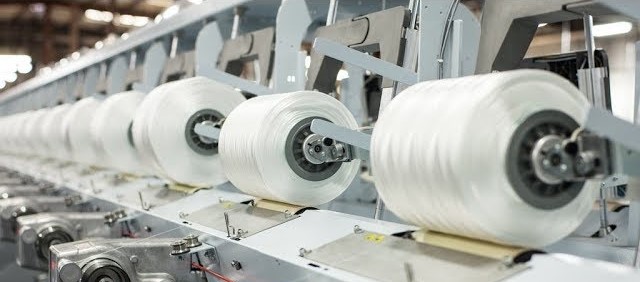As global consumption preferences shift, polyester has emerged as the fiber leading the charge in the textile industry. With innovations driven by the need for scalable, cost effective fabric production, polyester has become the backbone of the modern textile market. Premier Looms Manufacturers Private Limited, a key player in the development of waterjet loom technology, is helping manufacturers navigate these changes by providing cutting-edge solutions for polyester fabric production.
The Growing Demand for Polyester
Polyester is projected to continue its dominance in the global fabric market, surpassing traditional natural fibers like cotton. Key drivers of this growth include:
- Versatility: Polyester is used in a wide array of applications, from home textiles to technical textiles and apparel. Its adaptability makes it suitable for different fabric types, including georgette, satin, and crepe.
- Durability: Polyester’s strength and resistance to environmental factors like shrinking and wrinkling make it an attractive option for manufacturers. It outperforms natural fibers in terms of longevity, ensuring that polyester fabrics maintain their quality for longer periods.
- Scalability: Unlike natural fibers, which often face scalability issues due to limited raw material sources, polyester is produced synthetically, allowing for easy upscaling to meet global demands.
According to industry data, polyester demand is set to grow at a Compound Annual Growth Rate (CAGR) of 7%, with India emerging as a major hub for polyester production, thanks to robust infrastructure and government support.
India’s Rising Polyester Production: A Strategic Opportunity
India is at the heart of the polyester revolution, especially in regions like Gujarat, which boasts a strong polyester production base. With access to raw materials, ports, airports, and excellent road networks, Gujarat is perfectly positioned to cater to the rising global demand for synthetic textiles. Surat, known as the “Silk City” of India, has become the strongest base for synthetic fabrics, making it a significant player in the world’s textile economy.
Key advantages of Gujarat’s infrastructure include:
- Feedstock Availability: Gujarat is one of the largest producers of cotton and has a strong base for polyester production.
- Robust Infrastructure: The state has 42 ports along its 1600 km coastline, 13 domestic airports, and one international airport. In addition, Gujarat is self sufficient in electricity, making it easier for manufacturers to set up production facilities.
Innovations and Loom Types in Polyester Production
To meet the growing demand for polyester fabrics, textile manufacturers need to adopt advanced loom technologies. Premier Looms Manufacturers Private Limited offers a range of high-speed looms that are crucial for producing export-quality fabrics at scale. Here’s how various loom types contribute to this goal:
1. Waterjet Looms
- Best for Polyester Filament Yarns: Waterjet looms are most suited for producing polyester filament yarn fabrics, including apparel varieties like georgette, chiffon, and satin.
- Cost Efficiency: Waterjet looms offer the lowest production costs, making them ideal for high-volume production.
- GSM Range: Suitable for fabrics ranging from 40 to 600 GSM, they are perfect for both lightweight and medium-weight textiles.
2. Airjet Looms
- Versatility: Airjet looms are ideal for spun viscose and polyester-based fabrics. They provide flexibility in fabric production, with an emphasis on technical textiles.
- Speed: Known for their high productivity and energy efficiency, airjet looms are perfect for fast production runs.
3. Rapier Looms
- All Yarn Types: Rapier looms are capable of processing all types of yarn, making them versatile for different textile applications, including fancy and technical fabrics.
- GSM Range: Suitable for fabric weights ranging from 40 to 1000 GSM, making them ideal for high-end and specialized textiles.
Textile Industry Trends and Challenges
Despite India’s strong position in polyester production, several challenges prevent the country from fully participating in global trade. Premier Looms Manufacturers Private Limited is working to address some of these challenges by offering innovative loom solutions designed to enhance the competitiveness of Indian textile manufacturers.
- Global Competition: Countries like China, Korea, Taiwan, and Indonesia have traditionally dominated the polyester market. However, with increasing production capacities and a focus on export-quality fabrics, India is rapidly gaining ground.
- Technological Innovation: Premier Looms is at the forefront of loom technology, providing manufacturers with the latest advancements in waterjet and airjet looms. These looms are crucial for producing fabrics that meet international quality standards while keeping costs low.
- Capacity Growth: As per projections, the number of power looms and high-speed looms in India is expected to grow significantly by 2022, increasing fabric production capacity. This aligns with India’s goal of becoming a major player in global textile exports.
Premier Looms Manufacturers Private Limited: Powering the Future of Polyester Fabric Production
Premier Looms Manufacturers Private Limited has played a crucial role in helping manufacturers leverage India’s strong polyester production base. By offering high-quality looms with superior performance and cost-efficiency, they enable textile manufacturers to scale production while maintaining the highest quality standards.
With innovations like waterjet and airjet looms, Premier Looms has empowered manufacturers to meet the demands of global markets, helping to boost India’s position as a leading producer of polyester fabrics.

